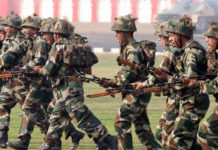Not law, nor duty: On ‘safe military jobs’ and Indians in war zones
Indians are being lured into fighting another country’s war
The government’s actions are much delayed and cold comfort to the families of the two men, from Surat and from Hyderabad, whose bodies are yet to be repatriated. Others have been seriously injured. What is most surprising is that the government has only spoken about the dangers of the Russian offers for military jobs now, when it is clear that the online ads and recruitments have been taking place for months. The government seems to have been made aware of the problem only after a Member of Parliament from Hyderabad wrote to the MEA in January, asking for assistance in bringing some of his constituents back. Since then, officials have given vague accounts of the numbers of those (“about 20”) who may have already travelled to danger zones. Now, after the CBI raids, they have identified at least 35 men. Accounts from those in Russia put the number at well over 100. The government needs to explain why it has not been able to make the case to bring back all the men more forcefully with the Russian authorities, despite good relations with Moscow. It has also dodged questions on why it has simultaneously green-lighted a massive recruitment drive to Israel, another conflict zone. A more structured, transparent and humane approach will be required to make it clear, domestically, and to partners abroad, that Indian lives matter. The priority is to bring them home safely, but also to ensure that others are not put in harm’s way, driven by the difficult economic situation back home.
















